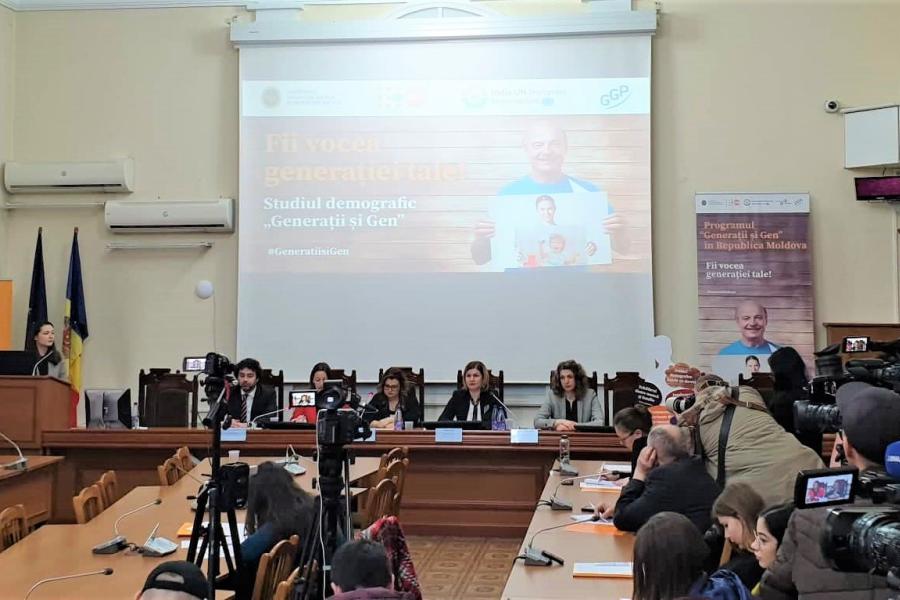Data collection within "Generations and Gender" demographic survey launched in the Republic of Moldova
11 February 2020
Data collection within the "Generations and Gender" survey started officially in the Republic of Moldova. The survey takes place for the first time, and it is the most comprehensive demographic study at an international level, to research the main demographic trends in the country, including aging, the desired number of children, family dynamics, and other essential aspects of people's lives.

"We know that the Republic of Moldova goes through critical demographic transformations, which have impacts on the structure of the population, the aging process, and the lower birth rates. These challenges dictate the necessity to approach evidence-based demographic policies, which would come as an answer to people's needs and meet their expectations. In this context, the Ministry of Health, Labour and Social Protection, in partnership with the National Bureau of Statistics, the United Nations Population Fund and the Netherlands Interdisciplinary Demographic Institute have signed a memorandum of collaboration regarding conducting the "Generations and Gender" survey," the State Secretary at the Ministry of Health, Labour and Social Protection (MHLSP), Nelea Rusu, stated at the opening of the launching event.
Based on the results of this survey, MHLSF and the UNFPA will work together to develop a series of evidence-based demographic policies, with the aim to increase the quality of people's lives.
"The success of the study and its impact on an individual level depends on each of us. We count on those 20,000 respondents selected to participate in this survey as they are the voice of the Republic of Moldova. Only by understanding the specific demographic context of the country and investing in data and research, we will be able to find forward-looking responses, make families stronger and respect the rights of each individual," said Nigina Abaszada, the Representative of UNFPA in Moldova.
About 20,000 people are invited to take part in the survey, with ages ranging from 15 to 79 years old, from the entire country, except the region from the left bank of the Nistru river.
Over 100 field operators are involved in the data collection, and they will visit 153 localities throughout the country. The persons selected to participate in this survey will receive an advance letter via the postal service from the company in charge of the sociological data collection. The participants will then have to answer nine sets of questions regarding their demographic situation, the relationship between partners, parents, and children, aspects of their health, attitudes, and perceptions on family life and household activities.
The period of data collection is January-June 2020. The consulting company involved in the process of fieldwork data collection is Magenta Consulting, which has an experience of over ten years in conducting similar studies.
The National Bureau of Statistics of the Republic of Moldova provided the survey sample based on a complex household listing process covering more than 60,000 dwellings.
The "Generations and Gender" Survey takes place with financial support from the Government of the Republic of Moldova and the India-UN Development Partnership Fund, being co-financed and implemented by the United Nations Population Fund in Moldova.
“We have seen the remarkable progress in implementing the transformative commitments of the 2030 Agenda for Sustainable Development through India-UN Development Partnership Fund financing,” said UNOSSC Director and Envoy of the Secretary-General Mr.Jorge Chediek. “I am very pleased to see Moldova pursuing its development goals and aspirations with India Fund support, and I look forward to learning about the results in the months to come.”
The survey is part of the "Generations and Gender Programme" in the Republic of Moldova. The GGS has already been conducted in 24 countries, and it is part of the international program coordinated by the United Nations Economic Commission for Europe (UNECE) and the Netherlands Interdisciplinary Demographic Institute (NIDI).


